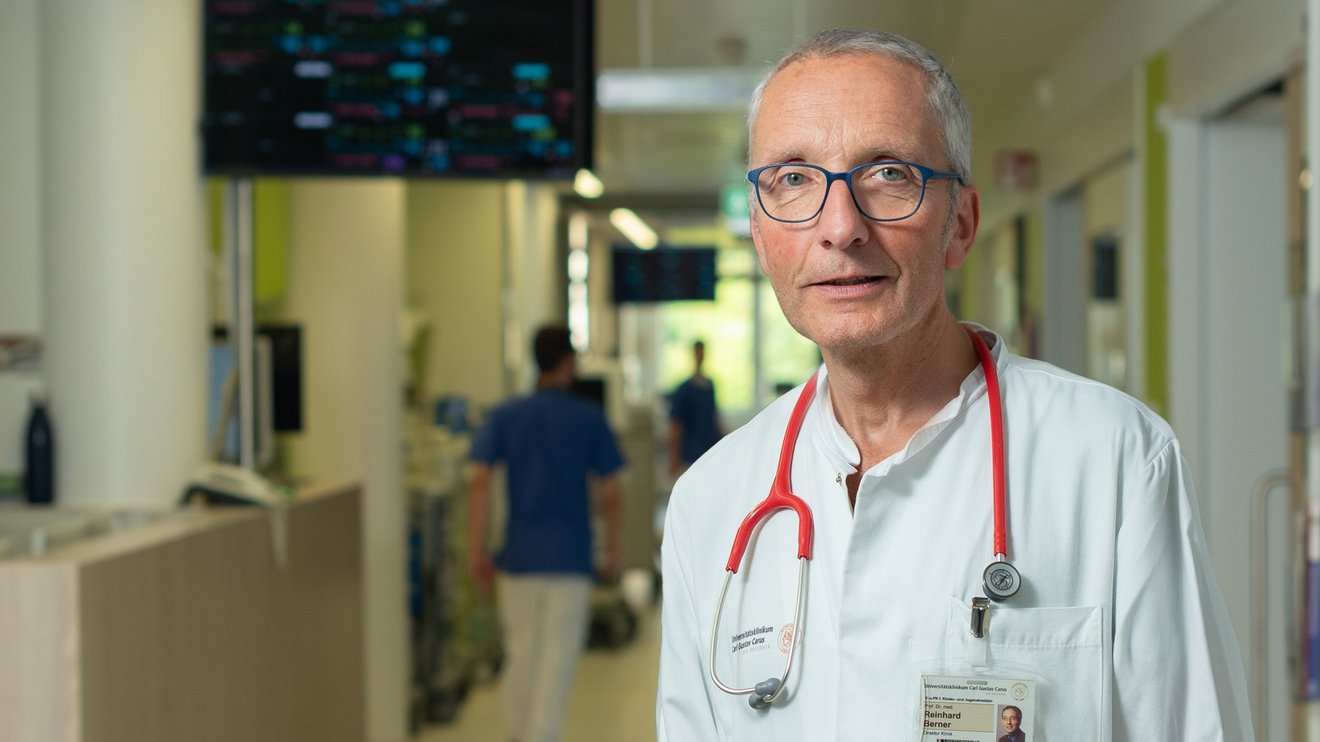Why are you involved in the NUM?
I have been involved in the NUM from the very beginning, as I found the interdisciplinary collaboration of scientists and doctors across many university locations to be extremely important and also extremely helpful, especially during the pandemic. The pandemic has also shown that you have to think "bigger" and can achieve more if you join forces. I see great opportunities here. But it must also be possible to incorporate existing structures. A high degree of penetration at the faculties and in the specialist societies must be achieved. Without the commitment - not only of individuals, but also of these structures - the network will not work. I am committed to this.
Where do you see the greatest opportunities if all university hospitals conduct joint research?
Germany is not a central state with a single supramaximal centre where all expertise can be found, but in our federal system there are many large, equal university centres where a great deal of expertise in different areas is available on a decentralised basis, so to speak. This expertise must be pooled. A coordinated association such as the NUM is very promising and offers great potential.
Tell us a technical term from your job that sounds exciting and that only the real experts understand! What does the term mean?
I don't know if the technical term "PIMS" sounds exciting. But it is an extremely exciting clinical picture, this "Pediatric Inflammatory Multisystem Syndrome", which we have learnt about for the first time during the pandemic. It is a highly febrile, highly inflammatory disease in which children and adolescents become extremely ill and often have to be treated in intensive care, but most of them recover completely. It appeared out of nowhere a few weeks after an often mild SARS-CoV-2 infection. We learnt relatively quickly how to treat it, but we were struck by how seriously ill these children and young people were. Interestingly, PIMS occurred less frequently with the later variants and then actually no longer occurred at all.
What excites you about your job?
What I love about my job is that you are suddenly confronted with clinical pictures such as PIMS that you didn't know before, whose epidemiology and progression, and perhaps also a little of their development, you learn to understand, and where treatment options arise from this. When these children come to the clinic, they are really seriously and critically ill and we are extremely worried about them; but we know what we have to do, treat the children accordingly and they often feel much better after just a few days and, as I said, most of them go home completely healthy again soon afterwards. Being able to accompany this clinically and scientifically is a great privilege of my job as a paediatrician at a university hospital in the Network University Medicine.




